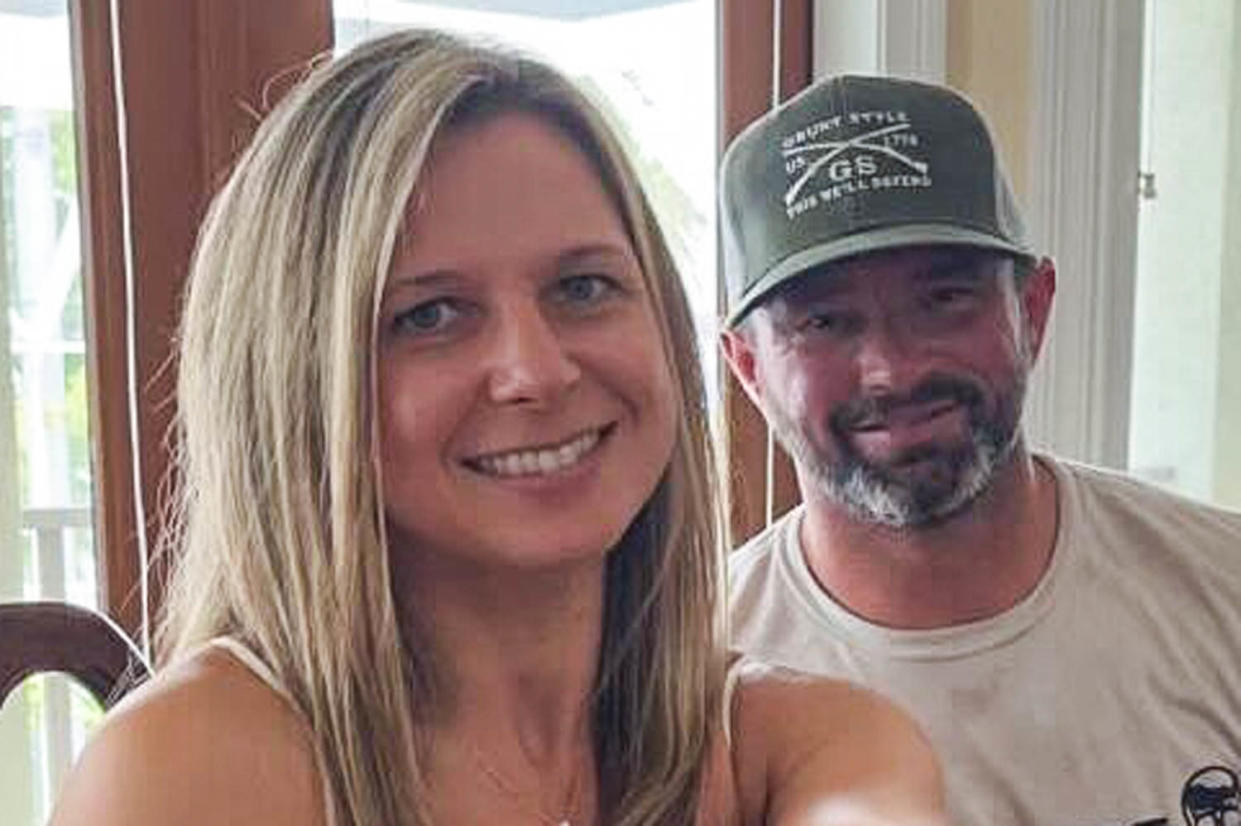Alabama clinic is resuming some IVF procedures, but other patients remain in limbo
An Alabama clinic at the center of a legal battle that sparked fears nationwide about the future of in vitro fertilization is quietly rescheduling embryo transfers. It had paused IVF procedures in the wake of a state Supreme Court ruling in February that frozen embryos can be considered children.
Two patients at the Center for Reproductive Medicine in Mobile said they were told on Friday that certain IVF procedures would resume on April 1. A spokesperson for the clinic did not immediately confirm this but told NBC News earlier in the week that the facility had started scheduling embryo transfer appointments.
Robin Banks, 39, said she and her husband, Joshua, 42, had planned to create embryos in early March. Now, after weeks of limbo, they learned Friday that they would be able to move forward.
Robin Banks had decided to freeze her eggs in 2017 after learning she had ovarian cancer and that chemotherapy could affect her fertility. Almost a decade later, in remission and newly married, she was ready to start a family when the court ruling landed.
“It’s just disappointing that all this is happening just weeks before we were given our chance,” Robin Banks said earlier this week.

The couple moved from Colorado to Fairhope, Alabama, a city just outside Mobile, two years ago. Before their procedure was rescheduled, Joshua Banks said he was considering whether they would need to move again.
The Supreme Court ruling sprang from wrongful death claims against the Center for Reproductive Medicine and Mobile Infirmary. In 2020, according to the ruling, a hospital patient removed several embryos from the clinic’s freezer, but the temperature “freeze-burned” the patient’s hand, causing them to drop the embryos, destroying them. The court ruled that a state law “applies to all children, born and unborn, without limitation.”
The Center for Reproductive Medicine was one of at least three IVF providers in the state to halt services after the court’s decision. Advocacy groups and health law experts argued that the court’s ruling posed legal risks to IVF medical staff and patients. And providers questioned whether they would be forced to take on additional insurance costs.
Under mounting pressure from local patients and a national outcry, Alabama legislators passed a measure to protect IVF in the state. On March 6, Gov. Kay Ivey signed a new state law protecting clinics from criminal or civil liability for their operations. “Let me say clearly: Alabama supports growing families through IVF,” she said in a statement at the time.
Although two of the three providers — Alabama Fertility and the University of Alabama at Birmingham — quickly announced that the law’s passage would allow them to resume treatments, the Center for Reproductive Medicine initially opted to keep its IVF services on hold. A spokesperson for Mobile Infirmary and the clinic said it would not reopen until it had “legal clarification on the extent of immunity provided by the new Alabama law.”
Earlier this week, George Gigicos, a spokesperson for the Center for Reproductive Medicine, told NBC News that the clinic had started rescheduling transfer appointments, though doctors, attorneys and Mobile Infirmary staff were still reviewing the new law.
“Once they figure that out, then we’ll be able to either resume or not resume — but that decision has not been made yet,” he said. Gigicos did not immediately answer follow-up questions on Friday.
Katey Lofton, 33, another patient at the clinic, had been waiting since last fall to have her embryo transferred to her uterus in early March, when she learned the court’s ruling meant the procedure would be delayed. She sent letters to state representatives urging them to protect IVF and encouraged loved ones to do the same.
Lofton got a call last week from her nurse that she’d been rescheduled for March 26, and then learned Friday that at least some procedures weren't resuming until April 1, which meant another delay.
“Here we were hopes up again — you know, thought we caught a break just to be kicked back down," Lofton said Friday. "It’s frustrating. It’s hard not to get angry."
Caroline Chism, 35, said she wouldn’t have her 10-month-old son without the Center for Reproductive Medicine. She and her husband planned to have another embryo transferred to give him a sibling, but the clinic’s pause put those dreams on hold.
After NBC News told her that the clinic had started rescheduling transfers, she called for a status update and was able to schedule a consult about her transfer.
She was relieved that some services were resuming, but said that, because of the ruling, nothing’s guaranteed.
“Thinking of the possibility this doesn’t get rectified, and we aren’t offered solutions — that would be a scary thought to not have access to our embryo,” she said.
